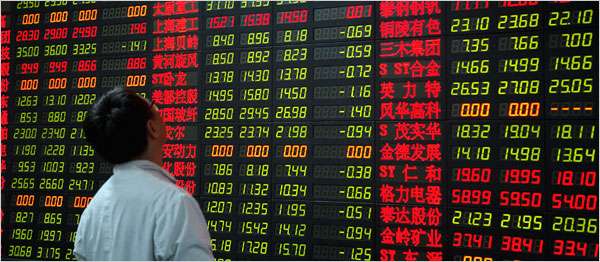Asia Welcomes Fed Move as Policy Makers Warn of Outflow Risks
Asian policy makers welcomed the Federal Reserve’s decision to raise interest rates for the first time in almost a decade, seeing it as an endorsement of better U.S. economic growth, while some emerging markets sounded caution about possible capital outflows.
On balance, the rate increase should be constructive for emerging market economies, Bangko Sentral ng Pilipinas Governor Amando Tetangco told reporters Thursday ahead of a rate decision at home. The region’s currencies may continue to fall against the U.S. dollar and money may flow out of developing countries, although not in the “significant magnitudes” seen in the past, he said.
The Philippines, Indonesia and Taiwan will be the first Asian central banks to react to the Fed’s move, with economists expecting the Southeast Asian nations to remain on hold while about half the analysts surveyed by Bloomberg predict a cut in Taiwan. Increasing U.S. borrowing costs may be closing the window for Asian central banks to shore up their economies with rate cuts, which could spur capital flight from emerging markets.
“The Fed’s statement should anchor confidence on the path of growth and inflation in the U.S.,” said Tetangco. “We may see the U.S. yield curve flatten, which would be positive for emerging market economies that have exposures in the long end of the curve or are planning to tap this sector for funding.”
Investors React
Asian markets cheered the Fed’s decision, as Japanese shares jumped, Chinese stocks advanced and gauges of regional equity volatility declined after the well-telegraphed decision. The reaction in financial markets reflected a growing conviction among investors that the U.S. economy is strong enough to withstand a higher cost of borrowing, even amid lackluster inflation.
In a news conference yesterday, Yellen repeatedly stressed her confidence in the health of the U.S. economy and played down concerns that it would be knocked off course by weakness overseas or by the recent tumult in the high-yield bond market. Since the recovery began in June 2009, gross domestic product has grown at a steady annualized pace of 2.2 percent per quarter on average.
“This is an appropriate decision, in keeping with a U.S. economy that is improving,” Japanese Finance Minister Taro Aso told reporters in Tokyo when asked about the Fed’s decision. The move is “not necessarily bad” for Japan’s economy and policy makers will continue to monitor U.S. monetary policy and global reaction to the Fed move, said Chief Cabinet Secretary Yoshihide Suga.
The “U.S. Fed rate hike and reference to gradualism are on expected lines,” India’s Economic Affairs Secretary Shaktikanta Das said in a Twitter post. India is well prepared and the Fed’s confidence about the economy’s recovery “is good news for our exports,” he said, adding that the “end of uncertainty and accommodative outlook for future will help.”
’Downward Pressure’
The Fed’s decision means that emerging-market economies will continue to experience capital outflows and downward pressure on their exchange rates, economic growth and asset markets, Hong Kong Monetary Authority Chief Executive Norman Chan told reporters Thursday. The speed of outflows from Hong Kong will depend on the pace of future U.S. interest rate increases, Chan said.
Yellen said that the central bank had put itself in a position to nurture the 6 1/2-year-old expansion by raising rates a bit now to avoid having to increase them a lot later. That will enable the Fed to tighten policy gradually, moving rates up in fits and starts to keep the economy on track.
The HKMA raised its base rate for the first time in nine years following the Fed’s move. Because Hong Kong’s currency is pegged to the U.S. dollar, the city’s monetary policy typically moves in line with the Fed.
The Fed’s rate increase was expected and unlikely to affect South Korea’s economy, Vice Finance Minister Joo Hyung Hwan said in a meeting in Seoul. South Korea will closely monitor financial markets and swiftly react to take necessary steps according to contingency plans if needed, Joo said.
Provides Certainty
The Fed’s decision provides certainty, Indonesia President Joko Widodo told reporters. The effect on the market has been positive with the nation’s stock index rising and the rupiah strengthening, he said.
The rise “is good news for our economy just because it’s a sign of U.S. strength,” New Zealand Finance Minister Bill English said in a Bloomberg Television interview. English said he expects an “exchange rate realignment” as the Fed raises rates over the next 12 to 18 months, weakening the Kiwi dollar.
The “sweet spot for us is the kiwi dollar a bit weaker against the U.S. and a recovering U.S. economy as a locomotive pulling the region along, and that’s possible over the next year or two,” said English.









